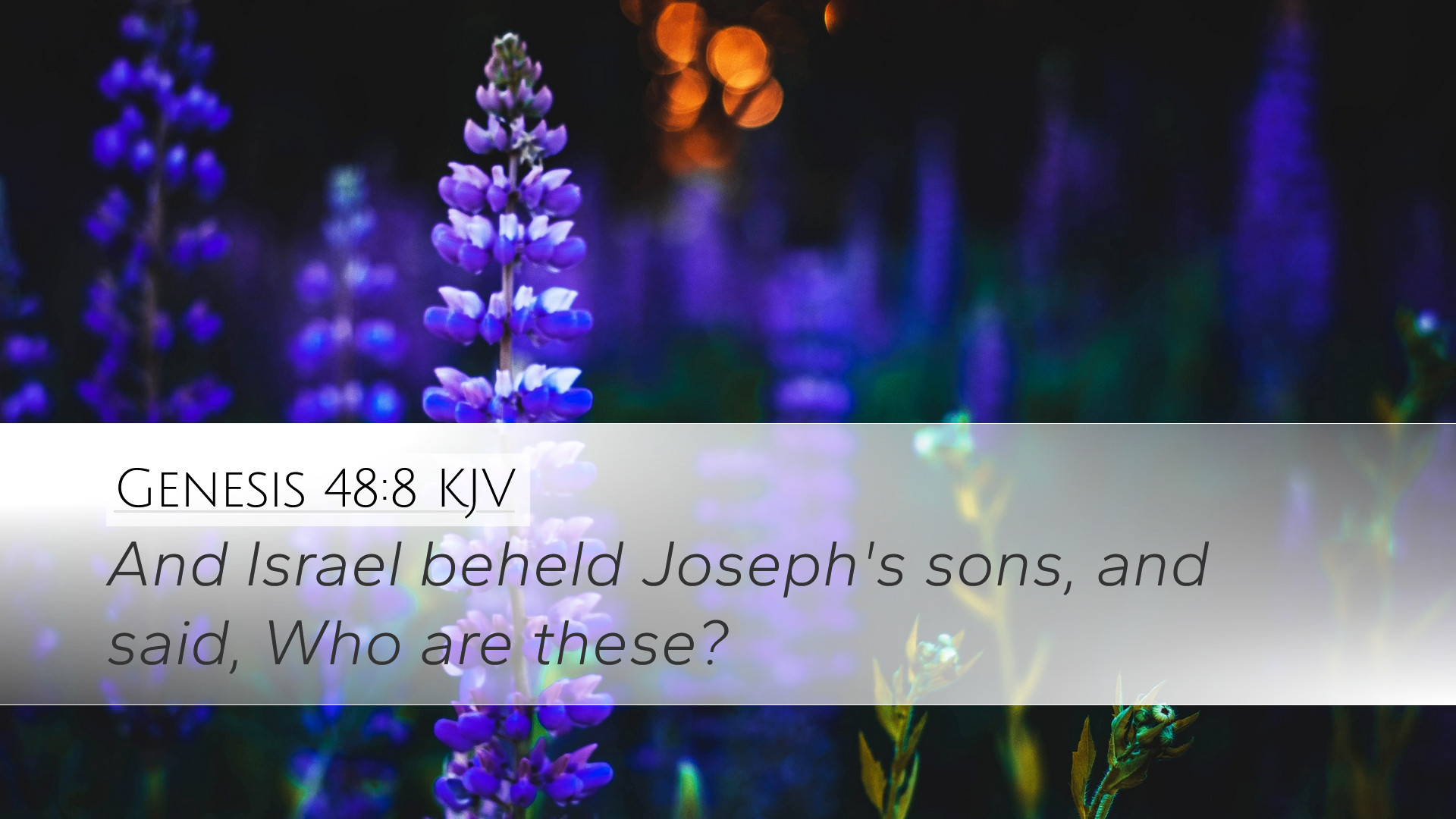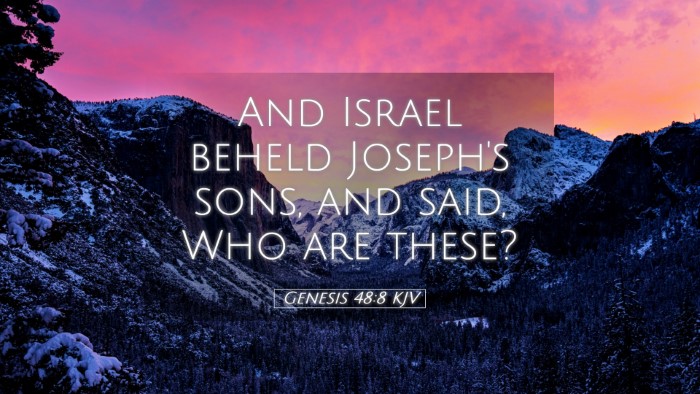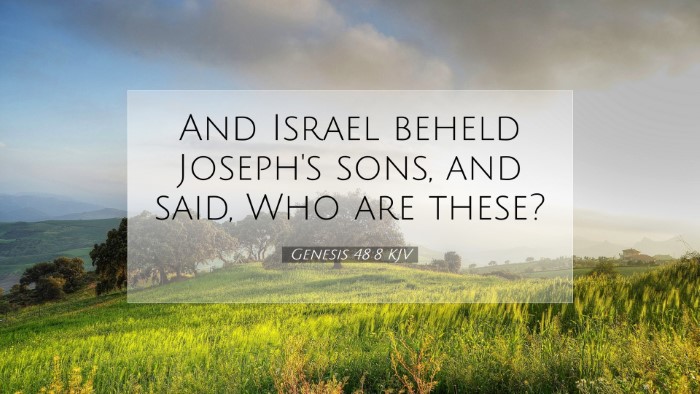Commentary on Genesis 48:8
Genesis 48:8 states: “And when Israel saw Joseph's sons, he said, Who are these?” This phrase invites a deeper exploration into the significance of Israel’s inquiry and the unfolding narrative of Jacob's blessing. This commentary synthesizes insights from several respected public domain commentators, including Matthew Henry, Albert Barnes, and Adam Clarke, to provide a comprehensive understanding of this pivotal moment in biblical history.
Contextual Background
The context of Genesis 48 lies in a critical transition of blessing and legacy within the patriarchal narratives. At this point in the text, Jacob, also known as Israel, is on his deathbed. Having been reunited with his son Joseph in Egypt, Jacob's desire is to confer a blessing upon his grandsons, Manasseh and Ephraim. This moment crystallizes the continuing covenantal promise originally given to Abraham and Isaac.
Jacob's Question
Israel's question, “Who are these?”, can be interpreted through various lenses:
- Expression of Recognition: Matthew Henry suggests that Jacob, though near death, remains spiritually discerning. His inquiry signifies both a moment of clarity and perhaps a moment of dimness; he knows Joseph but may not initially recognize his grandsons, emphasizing the familial bond and the continuity of God’s covenant.
- Symbolic of Future Generations: Albert Barnes elaborates that Jacob’s question also symbolizes the future of his descendants. By seeking to know Joseph's sons, Jacob is aware of his role in the lineage that will continue the promises of God. This connection reminds readers of God’s unwavering faithfulness to His covenant.
- Clarifying Identity: Adam Clarke interprets Jacob's question as a moment of identity clarification, both for his grandsons and for himself. Jacob is not merely interested in knowing their names but rather understanding their place within the divine plan. The naming and blessing that follows reveal their prophetic trajectory.
Theological Implications
This passage highlights several theological implications, particularly regarding the transmission of faith and blessings across generations:
- The Importance of Legacy: Jacob's blessings serve as a reminder to contemporary believers of the weight of parental and grandparental influence. As Jacob seeks to bless his grandsons, it challenges leaders and parents today to consider how they impart faith and values to the next generation.
- Covenantal Continuity: The interrogation of the identity of Joseph's sons illuminates the theme of God's everlasting covenant. Just as God’s promises were fulfilled through Abraham and Isaac, so too does He extend His grace through Jacob to Ephraim and Manasseh, emphasizing God’s unchanging character across generations.
- Recognition and Inclusion: This moment also speaks to the overarching narrative of redemption that spans Scripture. By acknowledging Joseph's sons, Jacob represents a broader inclusion within God’s chosen people, foreshadowing the inclusion of the nations in later biblical narratives.
Conclusory Thoughts
Genesis 48:8, while seemingly straightforward, opens a Pandora's box of theological richness regarding identity, legacy, and the fulfillment of divine promises. Jacob’s inquiry not only emphasizes his personal connection and care for his descendants but also challenges contemporary readers to reflect on their own familial bonds and responsibilities. As pastors, students, and theologians engage with this text, they are reminded of the enduring significance of lineage, the weight of blessings, and the importance of recognizing how God's plans unfold through generations.
In conclusion, this moment in Genesis 48 encapsulates a profound aspect of biblical theology – that God’s covenant extends beyond individual lives, ensuring that through familial relationships, His purposes are being realized, even amid uncertainties and the passage of time.


